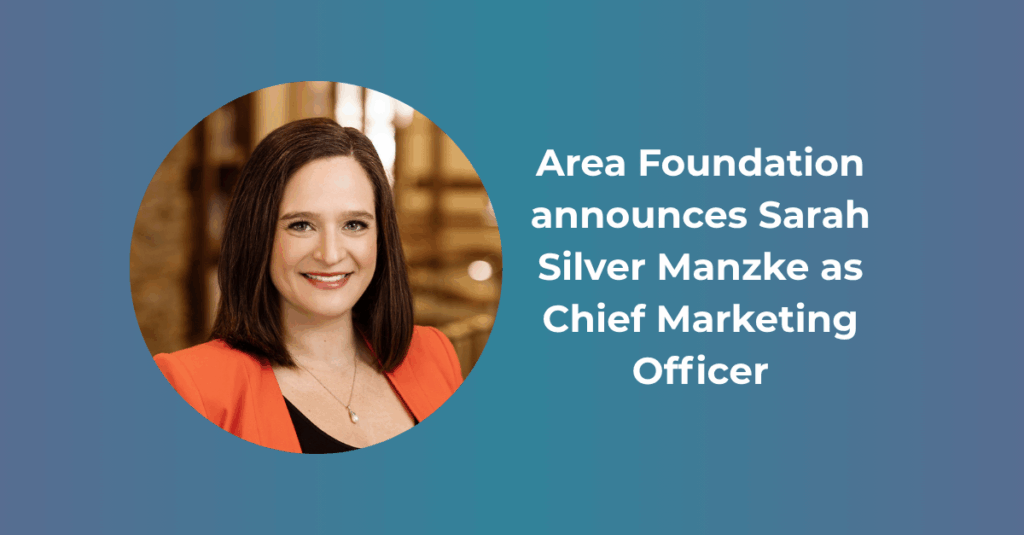Responding to the pandemic required philanthropic funders to change the way we support nonprofit organizations.
Among key challenges, provide unrestricted funding allowing organizations to adapt to rapidly changing environments; increase access and speed of support through simplified grant applications and reporting requirements; and to learn from and work alongside those on the frontlines in our schools, clinics, food banks and shuttered cultural organizations.
For some funders, this situation presented an uneasy compromise between their standard mode of operation and the urgency of the moment. There was also a promised return to business-as-usual on the other end. But for us at the San Antonio Area Foundation, this was an opportunity to road test shifts in organizational culture, program structures and grant practices that we had already put in place prior to the pandemic. By implementing permanent changes to how we work with and in community, including our shift to multi-year funding, we affirmed our commitment to Trust-Based Philanthropy (TBP).
Trust-Based Philanthropy challenges funders to understand how our practices can perpetuate the very inequities we seek to address and requires that we acknowledge and mitigate power imbalances in philanthropic relationships through changes in our bureaucratic processes and policies. In practice, this means streamlining application and reporting structures and working with grantees to understand how they define success and impact rather than forcing them to bend to inflexible definitions and metrics.
Above all, TBP affirms the expertise held by community members and nonprofit leaders. As the very name implies, it places trust at the center of the funder-grantee relationship, with the funder trusting that the grantee knows best how to handle and invest grant dollars.
Many TBP principles served as guideposts for funders looking for effective responses to the multiple social and economic crises of 2020. While many funders were thinking through the implications and implementation of general operating support for the first time, we had already laid trailblazing groundwork for these shifts through strategic planning prior to the pandemic and have had ample opportunities to demonstrate their efficacy in the ensuing years.

The Area Foundation had taken early steps towards fully adopting TBP in 2019 by shifting to general operating support across our impact areas and uplifting the role of small nonprofits across sectors. This trend is reflected in the increasing number of grants to nonprofits with an annual budget of less than $75,000 awarded over the last five years.
Our leadership in TBP continues as we maintain multi-year, general operating support grants and look ahead to the launch of our 2023-25 Responsive Grant Process, including:
- The continuation of multi-year general operating support, which provides unprecedented stability to our grantees accustomed to having to reapply for funding every year.
- Continued analysis of our grant processes to address barriers to success at every step, including awareness of grant opportunities and access to Area Foundation staff and technical support.
- Revising reporting requirements including streamlining written reports and integrating individual meetings with grantees into the reporting process.
- Ensuring our grant decisions are informed by diverse voices through inclusive volunteer Community Advisory Committees.
- Prioritizing community engagement so our grantmaking staff has ongoing opportunities to hear from people impacted by our programs and take part in the work of our nonprofit partners.
- Support beyond grantmaking dollars, such as leadership training programs, staff training and capacity-building.
TBP outlines tools to meet today’s challenges with hope for a more collaborative and equitable future. We are encouraged to see increasingly more funders committed to TBP, though we acknowledge that it presents quite a new approach to grantmaking for many of our nation’s more than 850 community foundations. Indeed, we often hear from nonprofits that our grants allow them to address gaps in funding left by the limited scope of funding from other philanthropic sources.

As we celebrate National Community Foundation Week 2022, we urge counterparts across the country to join us in investing in a more equitable future for our communities and to be bold in shifting toward the transformational possibilities of TBP. All of us – nonprofits, foundations, fund holders, and individual community members – have much to gain and much to lose if we don’t.
Our years-long transition to TBP has already proved effective: at the height of the pandemic in 2020, we awarded nearly $72 million in grants, in the process helping many nonprofits keep their doors open and get on a steady road to recovery. Click here to learn more about our work in the nonprofit community and how you can get involved.
Stephanie LaFroscia is Director of Grants and Community Engagement, and Patricia Mejia is Vice President for Community Engagement and Impact at the San Antonio Area Foundation.


Our hearts are with the Kerrville community following the devastating flooding.
Please consider making a donation to help our neighbors rebuild by clicking here.